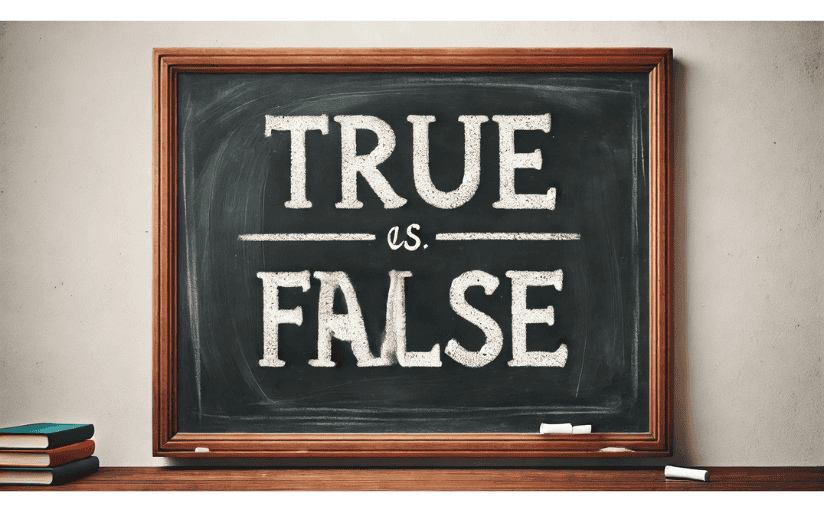When a popular television program resurrected a recently deceased character, I felt it set a dangerous precedent (not to be confused with “precedence.”) If death was not the end, then prevents the return of any dead villain? A friend argued, however, that other characters who had been gone longer were “more dead” and therefore would be much harder to resurrect. This was nonsense, I knew. For one thing, “more dead” is grammatically incorrect! To understand why, we need to review absolute adjectives.
Absolute Adjectives Are Not Gradable
Degree is a grammatical property of most adjectives. Previously, we covered two degrees of comparison: comparative adjectives and superlative adjectives. There are some adjectives, however, such as dead, that do not lend themselves to degrees. Known as absolute adjectives, these cannot be formed into comparatives or superlatives. They also cannot be modified by intensifying adverbs such as very, extremely and rather.

The Logic of Absolute Adjectives
Some adjectives, such as perfect and ultimate, are already semantically superlative. In such cases, the adjective’s inherent meaning precludes the possibility of a comparative form and renders a superlative -est or most construction redundant. Superior and inferior, as inherently comparative adjectives, also fall into this category.
Similarly, ancient and enormous are adjectives that, by definition, indicate extremes. These are strong adjectives that inherently contain the idea of “very” within them. Ancient, for example, means very old. It would not be reasonable to say more ancient, just as it would not be reasonable to say more very old.
Then there are classifying adjectives that operate according to binary logic, dealing with statuses or conditions that can only be either true or false, with no degrees or grades in between. For example, something is either digital or not digital. It cannot be more digital, less digital or the most digital.
Below is a short list of some common absolute adjectives:
| absolute | digital | gorgeous | ridiculous |
| alive | enormous | hilarious | superior |
| ancient | entire | horrible | terrible |
| awful | equal | huge | tiny |
| basic | excellent | incredible | true |
| brilliant | false | inferior | ultimate |
| chemical | favorite | nuclear | unique |
| complete | final | perfect | unknown |
| correct | furious | possible | whole |
| dead | gigantic | pregnant | wonderful |
Modifying Absolute Adjectives
Absolute adjectives generally cannot be modified by adverbs of intensity. Some absolute adjectives, however, can be modified by adverbs of completeness, such as completely, utterly and almost:
* completely digital
* utterly ancient
* almost complete
In literary contexts, professional writers have toyed with grading and intensifying absolute adjectives, yielding such constructions as truer words and more equal. Such usage is also abundant in informal speech. Exercise discretion when considering whether such playing against conventional logic is appropriate to the context in which you are writing.

Making Sense of Absolute Adjectives
Working with absolute adjectives has less to do with following rules than with applying logic and sense. So what is an absolute adjective? When you’re not sure whether an adjective is absolute, simply consider whether it would make sense to compare or intensify it. If you’re still stuck, let us know below! If you’re looking for help with grammar rules, check out some of our other GrammarMill posts.


Leave a Reply